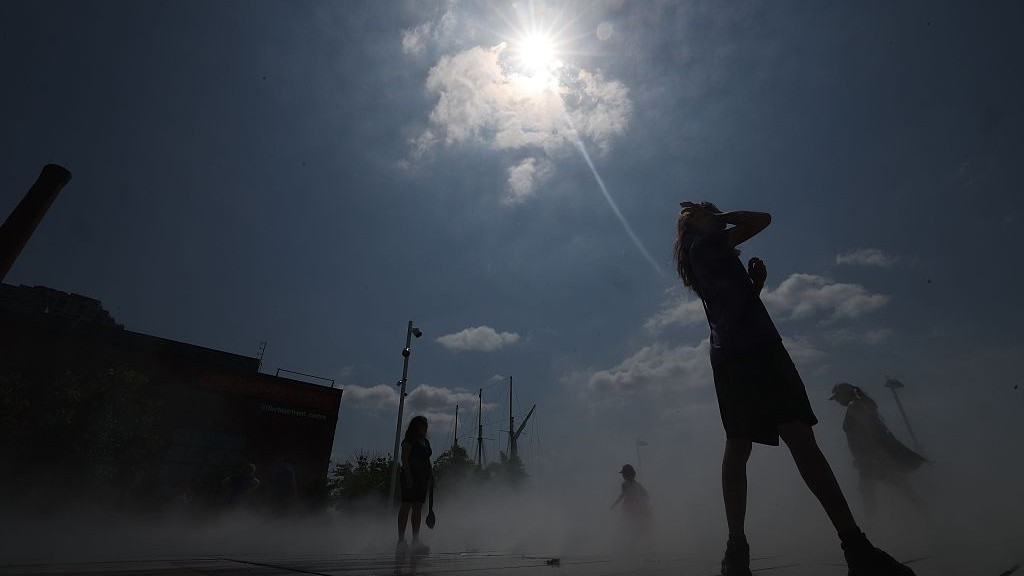It's official: The world will speed past 1.5 C climate threshold in the next decade, UN says
The UNEP's 2025 Emissions Gap report has found that global average temperatures will exceed 1.5 C (2.7 F) before 2035 — and this just days before the COP30 climate summit kicks off in Brazil.

Earth will overshoot the critical warming threshold of 1.5 degrees Celsius above preindustrial levels within the next decade, the United Nations Environment Programme (UNEP) said Tuesday (Nov. 4).
To stay below this threshold, the world needs to slash annual greenhouse gas emissions by 55%, compared with 2019 levels, by 2035. But given countries' inadequate actions so far, there's little to no chance that will happen, according to the 2025 Emissions Gap report.
"Given the size of the cuts needed, the short time available to deliver them and a challenging political climate, a higher exceedance of 1.5°C will happen, very likely within the next decade," UNEP representatives wrote in the report.
Countries agreed to pursue efforts to remain below 1.5 C (2.7 degrees Fahrenheit) and to limit global warming to "well below" 2 C (3.6 F) a decade ago in the Paris Agreement. These targets were based on scientific evaluations of how incremental warming might exacerbate climate-related events such as wildfires, droughts and heatwaves.
Humans can manage the consequences of 1.5 C of warming, but anything above that is dangerous, particularly for people living in economically developing countries and island nations, Kirsten Zickfeld, a professor of climate science at Simon Fraser University in Canada, previously told Live Science.
Compared with 1.5 C, warming of 2 C could more than double the share of the global population exposed to extreme heat. Sea ice-free summers in the Arctic are projected to happen once every 100 years under 1.5 C, but 2 C would make this a once-in-a-decade occurrence. Coral reefs would also be up to 29% worse off, while 38% more permafrost would thaw under 2 C compared with 1.5 C.
To stay below the 2 C threshold, countries need to cut emissions by 35%, compared with 2019 levels, by 2035, UNEP representatives wrote in the new report. However, the pledges countries have made so far will commit the world to much more: between 2.3 C and 2.5 C (4.1 F to 4.5 F) of warming, according to the report.
Get the world’s most fascinating discoveries delivered straight to your inbox.
If business continues as normal, the world could warm by 2.8 C (5 F) by 2100, UNEP warned.
Nonetheless, the outlook is slightly more positive than last year's Emissions Gap report, which found the world could warm by 3.1 C (5.6 F) if countries didn't commit to more ambitious pledges. But the 0.3 C (0.5 F) decrease in warming predicted in the 2025 report is still far from encouraging, because better methodology accounts for 0.1 C (0.2 F) of the improvement and the U.S. pulling out of the Paris Agreement could cancel even that modest win, according to the report.
New pledges from individual countries such as China this year "have barely moved the needle," the report states. "Nations remain far from meeting the Paris Agreement goal."
UNEP's report comes just days before the U.N.'s COP30 climate summit kicks off in Brazil. "We want it to be serious, and for the things we decide to be implemented," Brazilian president Luiz Inácio Lula da Silva (Lula) told Reuters.
Brazil will propose creating a new global environment council with the authority to travel to countries and track their progress against climate pledges, Reuters reported. "Because otherwise nothing will happen," Lula said.

Sascha is a U.K.-based staff writer at Live Science. She holds a bachelor’s degree in biology from the University of Southampton in England and a master’s degree in science communication from Imperial College London. Her work has appeared in The Guardian and the health website Zoe. Besides writing, she enjoys playing tennis, bread-making and browsing second-hand shops for hidden gems.
You must confirm your public display name before commenting
Please logout and then login again, you will then be prompted to enter your display name.
 Live Science Plus
Live Science Plus





